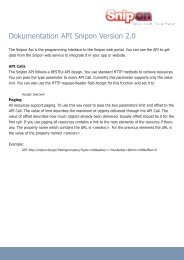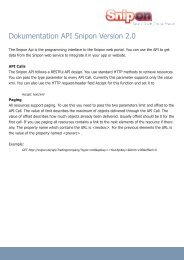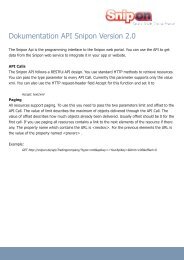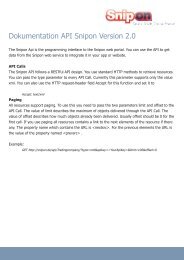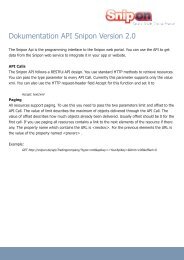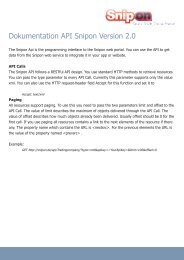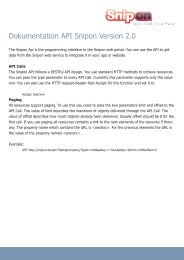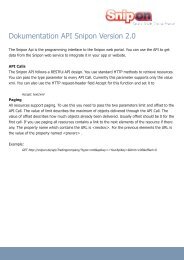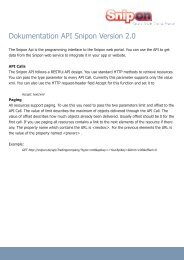test_pdf.pdf
Create successful ePaper yourself
Turn your PDF publications into a flip-book with our unique Google optimized e-Paper software.
SENA<br />
ENATOR<br />
JACK<br />
REED<br />
SEN. REED: It’s not yesterday’s politics. It’s today’s politics but it’s not an issue of salience to most voters.<br />
Most folks worry about: Do I have a job? Is my healthcare there or have I lost it? Are my kids going to college and<br />
how can I pay for it? They worry in general about the national security issues that are taking center stage. Iraq, they<br />
worry a lot about that. There’s a lot of concern about that. But as far as the details of arms control, I don’t think<br />
you’d ever see that as a 30-second commercial on television in any campaign. But that doesn’t obligate leaders to<br />
pay attention, to work at it, to be cognizant of it, and it certainly doesn’t eliminate the need, as an elected official, to<br />
pay attention to it, and particularly in the context of the president, to assemble around you people and policies that<br />
are supportive of arms control, not that undermine arms control.<br />
So you’ll never see a commercial, I think, in terms of my position on the nuclear Nonproliferation Treaty. But<br />
any serious person here in Washington, any serious person in the White House has to have such a policy and has<br />
to work every day to make sure they have some traction in the world.<br />
MR. KIMBALL: One final question before we conclude. We heard General Habiger in the previous session<br />
talk about how the U.S. nuclear posture has not appreciably changed over the last 15 to 20 years in terms of certain<br />
assumptions regarding the Russian stockpile and arsenal. The Department of Defense is due to deliver a new<br />
stockpile memorandum to Capitol Hill yet many of your colleagues have had a difficult time encouraging a debate<br />
about this because this is a classified document. Former Senator Bob Kerrey has talked about this.<br />
I’m wondering if you foresee an opportunity on the Armed Services Committee this year to discuss what the<br />
stockpile memorandum might suggest about the weapons complex, U.S. policy, and how might you work with<br />
your fellow Republicans to forge a process by which there can be a better dialogue about this very secret and<br />
opaque document.<br />
SEN. REED: Well, Daryl, you put your finger on one of the difficulties, which is it is secret. So there is a<br />
natural, not only reluctance, but a natural legal tendency not to be discussing these things in open sessions. But<br />
that, again, does not relieve us of the obligation to look carefully, not just in private but to discuss those aspects we<br />
can discuss and debate it.<br />
I wasn’t here for General Habiger’s speech but if you took a snapshot in the 1980s and took a snapshot today<br />
of our stockpile, it wouldn’t look much different. We might have moved some of the cards that designate whether<br />
it’s active or inactive, but that’s all we’ve done. And certainly it would seem to me to be a situation where we have<br />
the opportunity, particularly with the improved relationship with Russia, as evidenced by discussions this week<br />
between Secretary Powell and President Putin, to take real steps in terms of reducing significantly our stockpiles.<br />
I hope we do.<br />
We’re going to try to discuss these issues, both in committee and also on the floor, and I hope we are able to<br />
break through and get a good debate going.<br />
71<br />
71



